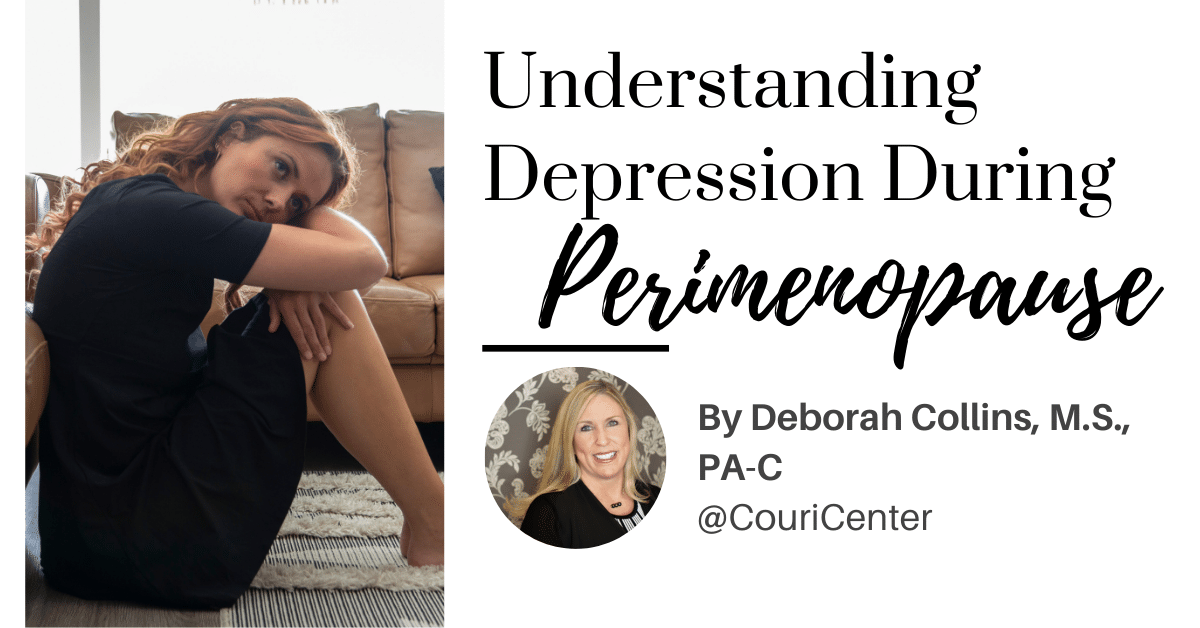
Have you ever thought, “Is this as good as it gets?”
Perimenopause can be a time of uncertainty with mood fluctuations and menstrual cycle irregularities. What used to be once-a-month emotional changes have melded into daily and sometimes hourly mood changes. In their 40s, many women don’t always identify that these symptoms could start Perimenopause. They know they feel sad, tired, or have no interest in doing the things they once loved, including sex! Indeed, women in their midlife are also experiencing many other emotional life changes. It is a period where children are heading off to college, many women seek new careers, or some begin to experience marital conflicts and disharmony in their relationships. Some women take care of aging parents or are strapped with mounting financial demands, leaving them feeling exhausted, anxious, and possibly even depressed. Then suddenly, they start experiencing hot flashes, heavy menstrual bleeding, sleep disturbances, and vaginal dryness. Add these physical symptoms on top of the emotional factors, and it’s a recipe for disaster! It’s no wonder we feel like we are losing our minds!
At the Couri Center, I often see women for a second opinion because they have been diagnosed with “midlife depression” and were prescribed an antidepressant. Before working here, I had no idea how much depression was tied to hormonal imbalances. Through the years, though, I began listening to my patients and taking inventory of their physical symptoms. I finally started connecting the dots and started using hormonal therapy as a first-line treatment instead of reaching for antidepressants. The effects of weight gain and sexual dysfunction due to the antidepressants can often compound a patient’s initial symptoms. Throw that on top of hot flashes, vaginal dryness, and insomnia, and you would be depressed as well! Of course, for some women, with a lifetime of depression, postpartum depression, etc., antidepressants may still be necessary. We can identify who those individuals are through a careful history and exam and make suggestions based on their personal history.
For women whose depression and anxiety start in the perimenopausal or menopausal period for the first time, it is highly suggestive of a hormonal imbalance. Recently, scientists have focused on the biological effects of hormonal fluctuations on mood since this is a time when the ovaries begin to make less estrogen. It is well known that estrogen interacts with chemicals in the brain that can affect mood. In some women, the decrease in estrogen during Perimenopause may lead to depression and emotional distress. (Kahn, D et al.) Also, during Perimenopause, your estrogen levels rise and fall unevenly along with lowered progesterone. Cycles may lengthen or shorten, periods can get heavier, and you may have cycles when your body does not release an egg. Hot flashes can occur along with sleep problems, vaginal dryness, and lowered interest in sex. If this is not enough, frequent UTIs, loss of bone, and changes in your cholesterol can also occur during this time.
Grant it, hormones may not be first-line for everyone, but it’s definitely worth an office visit discussion. For the wife whose marriage is suffering because she has no interest in intimacy, the mother who has not slept in several nights due to severe hot flashes, or the woman who can’t control her emotions from minute to minute, hormones could be a game-changer. We want to understand and help you be the best version of YOU!
Since working at the Couri Center, I have heard firsthand stories of how woman’s lives have been transformed by simply adjusting their hormones. We can tailor the right therapy for you, whether nightly progesterone or estrogen, to help with sleep, anxiety, and hot flashes or testosterone pellets to increase mood, energy, libido, and focus. There are also many non-pharmaceutical solutions to help control perimenopausal symptoms. Women spend more than 1/3 of their life in menopause, and together we can formulate a treatment plan to help you feel optimal and enjoy your best life.
Deborah Collins, M.S., Physician Assistant
